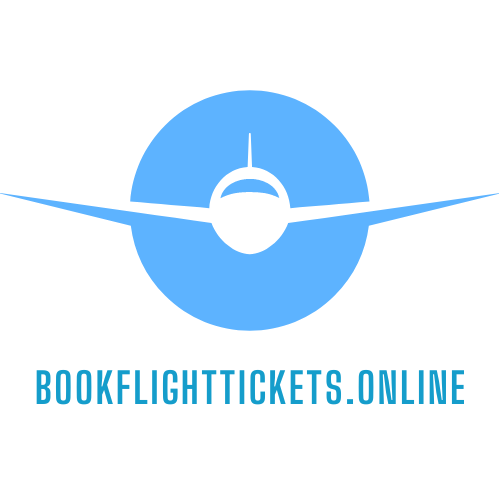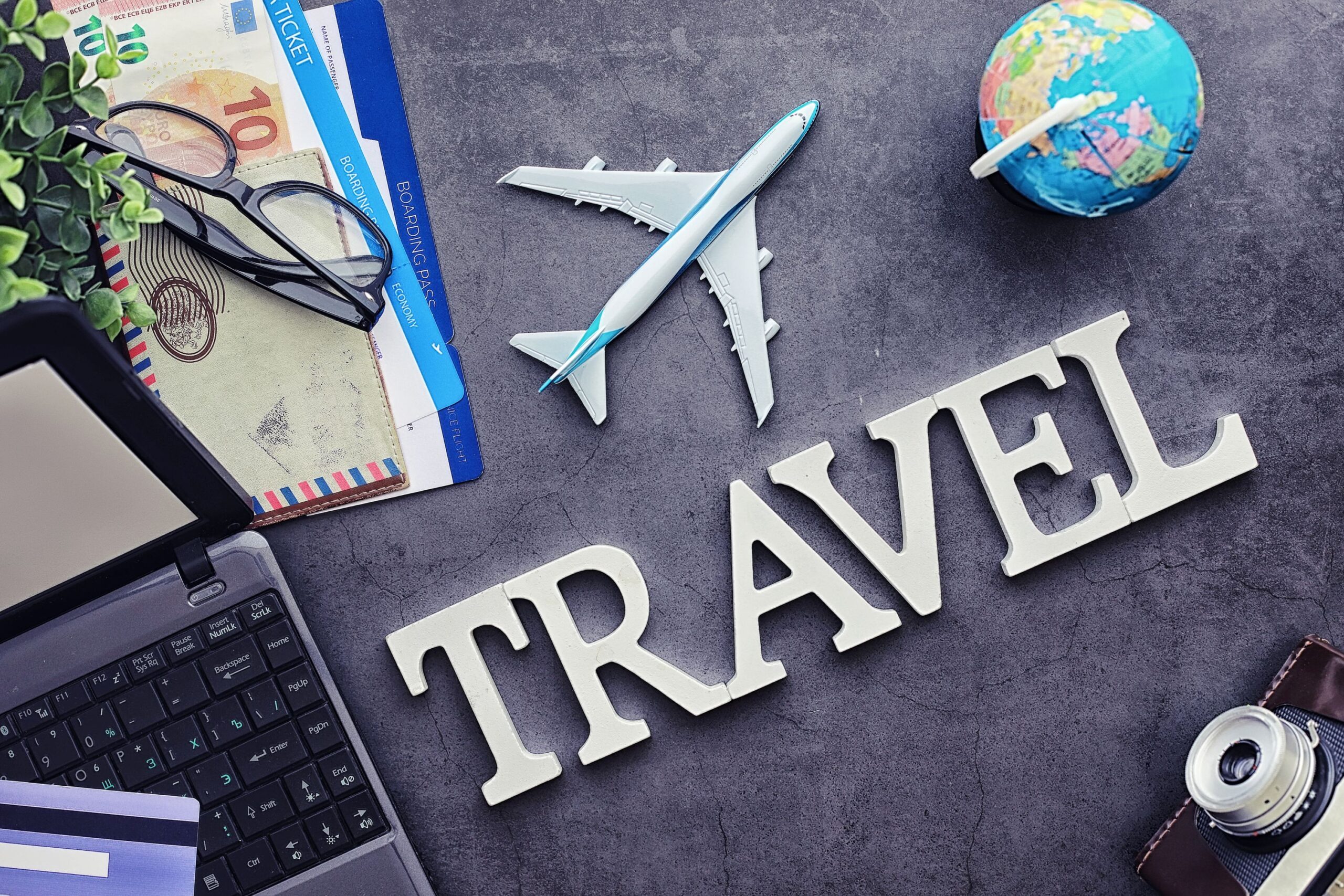Booking a flight online may seem simple at first. But the base fare is often just the beginning. Airlines commonly charge extra for services that used to be included—things like seat selection, checked bags, carry-on luggage, in-flight meals, and even printing your boarding pass.
These fees are part of a pricing strategy called “unbundling,” where the ticket covers only the seat itself. Everything else becomes optional—and chargeable. So, what do airlines charge extra for? Almost anything beyond getting you from point A to point B.
Let’s review the most common and frequent airline extras, explain why they’ve become standard practice, and share practical tips to help you avoid paying more than necessary.
Seat Selection Fees: Why Choosing Your Spot Costs You
If you’re flying on a budget airline—and even with some full-service carriers—you’ll probably see a charge for picking a seat. Whether you want a window, aisle, or to sit next to someone, it often costs extra.
Airlines use this as a way to boost their earnings. The lowest fare usually doesn’t include any seat choice. If you skip this step, your seat will be randomly assigned at check-in. That could mean sitting far from your travel partner or getting squeezed into a middle seat at the back.
When should you pay for a seat? It’s worth it if you fly long-haul, travel with kids, or want an aisle. If not, wait until check-in opens—you might still get a decent seat for free.
Checked Baggage Charges: When Luggage Becomes a Luxury
Checked baggage fees are everywhere. Most airlines no longer include a checked bag unless you book a more expensive fare. These charges often range from $25 to $100+ per direction.
But there’s more: size and weight matter. Go over the limit, and you’ll pay overweight fees—sometimes $10 to $20 per extra kilo. That adds up fast.
Your best move? Weigh your bag at home. If it’s close to the limit, shift heavier items to your carry-on or wear heavier clothes. And always book luggage in advance online—paying at the airport will cost more.
Carry-On Fees: Not Always Free Anymore
Carry-on luggage used to be standard. Some budget airlines charge for anything larger than a purse or small backpack. They often call this your “personal item.”
Flying with a carrier like Ryanair or Wizz Air? Read the fine print. If your cabin bag won’t fit under the seat, it probably isn’t included in the base fare.
You need to check the airline’s carry-on policy when booking. If a full-size carry-on isn’t free, adding it during booking is usually cheaper than later at the airport gate.
Food and Drinks: What You Eat, You Pay For
Remember when meals were included on most flights? That’s mostly gone—unless you’re in business class or flying long haul with a traditional airline.
Today, most low-cost carriers sell food and drinks separately. Water, coffee, snacks, and sandwiches? They’ll likely cost more than you’d pay on the ground. And yes, some airlines even charge for water.
If you want to save here, bring your snacks. Trail mix, sandwiches, or pre-packed meals work great. Just avoid liquids over 100ml to pass security without issues.
Changing Your Ticket: Flexibility Isn’t Free
Can you change your flight to another day? Only if you’ve paid for that option. Many cheap tickets can’t be changed at all or have steep change fees.
It’s not just the fee, either. If the new flight is more expensive, you must pay the difference in the fare. Some change fees reach $200+.
So, if your plans might change, consider a fare that allows flexibility. It might cost more up front, but it can save you later.
Airport Check-In Fees: A Surprise for Some Travelers
This one catches people off guard. Certain low-cost airlines charge you a fee if you don’t check in online and show up at the airport without a boarding pass.
They’re encouraging self-service to save on staff costs. So they reward online check-ins and penalize airport check-ins.
You should check in online when it opens—usually 24 to 48 hours before your flight—and download your boarding pass. If necessary, print it at home to avoid any trouble at the airport.
In-Flight Wi-Fi and Screens: Paid Entertainment
On some flights, you’ll have seatback screens with free movies. On others, you’ll need to pay. And in many cases, there’s no screen—just a Wi-Fi system that charges by the hour or by data use.
Wi-Fi prices vary greatly, from $5 for a basic connection to $25 for unlimited streaming.
A good way to save here? Download shows, podcasts, or books onto your device before your flight. That way, you won’t need to rely on the plane’s internet or pay for screen access.
Boarding Pass Printing: That Extra Slip of Paper Might Cost You
Some ultra-low-cost airlines now charge to print a boarding pass at the airport. They want you to use their app or print it at home.
If you forget and show up without it? Expect a charge.
To avoid this, always confirm check-in options after booking. Keep the digital boarding pass on your phone or bring a printed copy if your battery runs low.
Booking and Payment Fees: Watch for Sneaky Add-Ons
Right at the end of the booking process, a “payment fee” or “service charge” might pop up when you think the price is final. This often depends on your payment method.
Some sites or airlines add fees for using a credit card. Others might charge extra if you book through a third-party website.
Checking if your airline accepts fee-free payments can help. Sometimes, debit cards have lower charges. Booking directly on the airline’s site can also help you avoid third-party add-ons.
Priority Boarding: Pay to Get on First
Here’s one you might see near the end of your booking: pay a bit more to board earlier. Priority boarding is popular among travelers who carry bags onboard and want to claim overhead space quickly.
You can likely skip this if you’re traveling light and seated toward the back. But if you want to board without a rush, the add-on might be worth it, especially if it’s bundled with other extras.
Tip: Some fare bundles or loyalty tiers include priority boarding at no extra charge. Check before you pay for it separately.
Traveling with Pets: A Comfort That Costs
Bringing your dog or cat on a flight? Most airlines will let you do it, but there’s always a charge. Pets traveling in-cabin usually cost between $50 and $200 per flight.
That cost increases if your pet must travel as cargo, especially on international routes. Plus, you’ll need a proper carrier, health certificates, and early booking because space is limited.
Before you book your flight, check the airline’s pet policy. If you skip this step, you might encounter restrictions or unexpected fees.
Flying with Babies: Lap Infant Fees and Equipment Rules
It’s easy to assume babies under two fly for free. That’s often true for domestic flights, but many airlines charge around 10% of the adult fare for a lap infant on international routes.
Even if your baby has no seat, you’ll pay some of the fare. And do you want a separate seat with a car seat? That’s a full child ticket.
Airlines also charge for extras like checked strollers or travel cots unless you arrange them early. Always review their infant travel page when booking—rules differ between carriers.
Lounge Access: Peace and Snacks, for a Price
Airport lounges used to be for business travelers, but now anyone can buy a pass. Prices range from $25 to $60, depending on the location and what’s included.
A lounge can be a game-changer if you have a long layover. Free snacks, comfy chairs, fast Wi-Fi, and clean restrooms make a difference after hours in transit.
You can check if your credit card includes access. Otherwise, you might see lounge options as add-ons during online check-in or at the airport.
More Space, More Money: Extra Legroom Seats
Need more legroom? Many airlines offer extra-space seats in economy, but they don’t come cheap. Depending on the flight, you’ll pay anywhere from $20 to over $200.
Sometimes these seats include perks like early boarding or better recline. The added space can make a real difference if you’re tall or flying overnight.
Before you pay, check the seat layout online (using tools like SeatGuru) to see if the seat is better or just slightly closer to the front.
Skip the Line: Fast Track Security Fees
Want to avoid long airport lines? Some airlines let you purchase access to a faster security line.
This add-on usually costs around $10–20, and while it won’t guarantee a no-wait experience, it can move you through security faster, especially during peak travel times.
Parents with kids, travelers on tight connections, and anyone who values less hassle at the airport might benefit.
Travel Insurance: Optional, But Sometimes Smart
When booking flights online, you’ll often see an insurance box. Some people skip it without thinking, but it’s worth a pause.
Basic insurance typically includes trip cancellation, lost bags, and emergency medical care. This could be a wise investment if your ticket is non-refundable or travel dates aren’t locked.
You don’t have to buy insurance from the airline, either. Sometimes third-party coverage is more comprehensive for a lower price.
Flight Status Alerts: Free App or Paid SMS?
Some airlines offer flight status alerts and SMS about delays or gate changes, but charge you for them. These fees are usually small, but still avoidable.
Instead of paying, you can download the airline’s mobile app. Most offer free real-time updates, mobile boarding passes, and check-in notifications without extra fees.
Carbon Offsets: Do They Make a Difference?
Many airlines now allow you to pay a small fee to offset your carbon emissions. It’s voluntary, but more passengers are opting in.
These charges support environmental projects, from tree planting to renewable energy. You’ll see this option when booking, or sometimes at checkout.
If sustainability matters to you, it’s a quick way to contribute. If not, you can skip it—there’s no obligation.
How to Avoid or Reduce Extra Airline Charges
You know now what airlines charge extra for. But here’s the better news: you can sidestep a lot of it with a bit of strategy. Airlines design fees to maximize revenue, but savvy travelers don’t need to pay for everything.
Let’s talk about what works and how you can book smarter.
Book Direct When You Can
It might be tempting to book through an aggregator, but direct booking has perks. Airlines often give more precise breakdowns of what’s included, offer app-exclusive discounts, and have better support if things go wrong.
Also, some third-party sites add hidden service fees, especially on changes and cancellations. Always compare before finalizing.
Choose a Fare That Fits Your Trip
The cheapest isn’t always the best. Basic fares might have restrictions that cost more later, and you might pay extra for a carry-on, a seat, or flexibility.
Before you book, take a minute to compare fare types. Paying $20 more now could save you $100 later if your plans shift or you need to bring a bag.
Pack Smart to Avoid Extra Charges
One of the simplest ways to avoid baggage fees is by packing light and bright. If you’re only going away for a weekend or a short work trip, you can travel with a personal item that fits under the seat, like a backpack or tote.
If you need more, check the airline’s carry-on rules before booking. Some allow a larger bag for free, while others don’t. And always weigh your bag at home. Overweight luggage can trigger surprise fees at the check-in desk—sometimes more than the ticket cost.
Tip: rolling clothes tightly and wearing bulkier items (like jackets or boots) can help you maximize space without crossing the weight limit.
Use the Airline App
If you haven’t downloaded the airline’s app yet, now’s the time. Most airlines give app users early check-in, mobile boarding passes, and real-time updates.
It’s also where you’ll often find cheaper prices for extras. Some apps offer seat upgrades or baggage discounts when booked in advance. Even Wi-Fi or lounge access might come with a lower in-app rate.
Plus, you’ll be the first to know if your flight changes or there’s a gate swap. That alone can save you from missing flights or waiting in the wrong line.
Avoid Airport Purchases
Anything you buy at the airport—from snacks to baggage fees—will usually cost more. Airlines know you have fewer choices once you’re past security, and they price accordingly.
Plan ahead. Pay for your baggage and seat selection during booking or while checking in. Bring snacks. Charge your devices in advance. The less you rely on airport services, the more you save.
Check the Airline’s Fee Chart
Every airline has a page that outlines its fees—baggage, seat upgrades, ticket changes, and more. It’s not always easy to find, but it’s there.
Reading through that page before you book can help you avoid surprises. For example, some airlines charge for everything separately, while others bundle extras in higher fare classes.
Knowing what you’re getting into before you pay makes a big difference. You can budget accurately and avoid feeling like you’re being nickel-and-dimed at every step.
Consider an Airline Credit Card
If you fly regularly with one airline, its branded credit card could be worth it. Many include benefits like a free checked bag, priority boarding, or discounted in-flight purchases.
While these cards often come with an annual fee, the perks can add up quickly. If you take just a few round trips per year, the savings on baggage alone could cover the cost.
Just make sure the card’s perks match your travel habits. Those benefits will mean little if you rarely check bags or use lounges.
Sign Up for Loyalty Programs
Joining an airline’s frequent flyer program is free and gives you access to perks even if you don’t fly often. Early access to sales, free upgrades, and fee waivers are possible benefits.
Some airlines waive seat selection or boarding fees once you reach a basic status level. It won’t happen on your first flight, but it pays off if you stick with the same airline.
Watch Out for Third-Party Sites
Booking sites might show you a cheap fare, but they sometimes leave out key details. You might find out later that your carry-on isn’t included or that changes cost more than expected.
Before paying, check the airline’s official site for the same flight and compare what’s included. If the third-party deal is better, book it. But if the airline’s site gives you better extras or lower change fees, go directly.
Also, managing your trip is easier when you book directly. If you need to cancel or adjust your flight, it’s simpler than going through a third-party agent.
Use Flight Comparison Tools That Show Full Costs
Some tools and websites now show the actual cost of a flight, including extras like baggage and seat selection. This helps you compare apples to apples, not just the base fare.
Sites like Google Flights, Kayak, and Skyscanner sometimes include these filters. But even they can miss certain charges. So once you narrow down your flight, head to the airline’s website to verify the full cost.
Don’t Ignore Fare Bundles
Airlines sometimes offer bundles—fare types that include several extras for one price. While they cost more upfront, they are often cheaper than buying everything individually.
For example, a “Standard” fare might include a carry-on, seat choice, and change flexibility. The bundle could save you $50 or more if you pay for those anyway.
So when booking, don’t just go for the lowest fare. Pause and compare what’s included.
FAQs
What airline extras are the most common?
Checked baggage, seat selection, carry-on restrictions, and onboard food are the most common extras passengers encounter when booking flights.
Is seat selection always a paid service?
No. Many airlines offer free seat assignment at check-in, but if you want to choose your exact seat in advance, it often comes with a fee.
Do budget airlines always charge for carry-on luggage?
Yes, often. Many low-cost carriers only allow a small personal item for free, while a full-sized carry-on typically costs extra.
Can I avoid baggage fees altogether?
Yes. If you travel with only a personal item and stay within the size and weight limits, you won’t need to pay baggage fees.
Are printed boarding passes still free?
Not always. Some budget airlines charge if you arrive at the airport without checking in online or printing your pass beforehand.
Is flight insurance necessary?
It depends on your plans. Basic insurance can protect your money if your ticket is non-refundable or you’re traveling during a risky season.
Are loyalty programs beneficial for occasional travelers?
They can be. Signing up is free and can lead to waived fees or early access to discounts, even without frequent flying.




